Creation Corner
Science fraud: more than you think
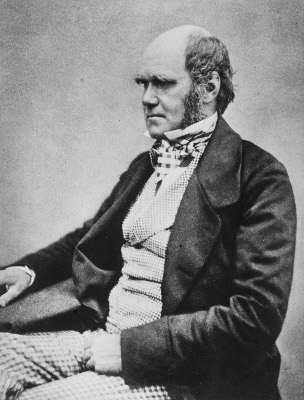
Science fraud occurs much more often than scientists, or their apologists, want to admit. And scientists do not police each other well. If this problem affects operational science, then how much worse might it affect origins science?
Science fraud – a particularly disturbing episode
This fall, a disturbing story of science fraud broke in the world of psychological research. Professor Diederik Stapel of Tilburg University built an international reputation for research on several social-psychology topics.
Stapel’s work encompassed a broad range of attention-catching topics, including the influence of power on moral thinking and the reaction of psychologists to a plagiarism scandal.
That last would become richly ironic. Stapel has now admitted that he fabricated his data in dozens of papers. Worse yet, fourteen of twenty-one doctoral dissertations are now suspect. The reason: Stapel was the adviser on all of them, and furnished the data. Those data are among those that Stapel fudged or literally made up.
Falsification of data (“dry labbing”) is the worst form of science fraud. Universities usually expel students if they catch them at it. In this case, Tilburg University not only fired Stapel but ordered him to surrender his PhD.
Tom Bartlett, writing in the Chronicle of Higher Education, lists the ways, and the reasons, that Dr. Stapel got away with it:
- Pretending to help colleagues
- Making his data look good when they were not
- Conflating fact and fiction
- Intimidation
- Control of the data
On December 3, Alan Kraut, also of the Chronicle, sought to assure people that scientists could and would still police one another. But his own evidence suggests that this is not happening and will not happen. Two articles that Kraut linked to, showed that:
- Many of the methods for data gathering and reporting practically lend themselves to “seeing” things that aren’t there. And:
- Scientists “fudge” their data all the time. They might not tell Big Lies, as Stapel did. But they tell “little white lies” that, together, add up to thoroughly mistaken insights. And one-third of all investigators in psychology might be guilty of this at one time or another.
Science fraud need not be intentional to do damage. When science fraud persists, laypeople ask themselves, rightly so: can they trust scientists? This is particularly important when legislators base public policy, and judges base rulings, on what scientists tell them.
Kraut links to a proposal by Barbara Spellman at the University of Virginia. Spellman wants all investigators to put all their data into a public dump. Thus anyone could see the data and check it out. Kraut also hopes that the two studies that show bad behavior (though not as bad as Stapel’s) will cause other scientists to look hard at how they do things. But will they?
Evolution scientists close ranks
In a celebrated case of which your editor has direct knowledge, the evolutionary scientists, far from implementing anything remotely similar to what Spellman proposed (and Kraut agreed with), closed ranks. And they are still closing ranks. This has invited science fraud in the past and does so today.
Richard Lenski, professor of microbial ecology at Michigan State University, insisted that, after twenty years of work, he could prove evolution. According to Lenski, minor but significant changes in a population of Escherichia coli, a common bacterium of the gut, showed evolution in action. The key: he insists that those changes are not due to contamination.
Andrew L. Schlafly, attorney-at-law and founder of Conservapedia, asked Lenski repeatedly to show the raw data that led him to that conclusion. And Lenski refused.
This article gives details on the questions that Schlafly and his students have about Lenski’s proposition and his claims.
In the last several days, Mr. Fergus Mason, of Glasgow, Scotland, has excoriated Schlafly (and, by your extension, your editor, who is a senior administrator of Conservapedia) in the comment spaces of this site. Mason has staunchly defended Lenski’s decision to release the data only “to competent scientists”—competent, that is, by Lenski’s definition. Thus Lenski insists on keeping control of the data. That is one of the ways, indeed the most important way, that Stapel got away with his science fraud for so long. Thus Mason’s defense of Lenski now suffers from a fatal weakness.
The most absurd defense that Mason gave is:
The data are the bacteria!
No, Mr. Mason. The data are the detailed notes on all the things that Lenski claims to have done with his sample, to confirm his observations. They are the same sort of data that Spellman (see above) suggested that every investigator ought to publish to a publicly available site. She even suggested that people publish data from studies that editors don’t normally publish, just to promote honesty in science generally. Neither Spellman nor Schlafly suggested releasing a delicate or hazardous sample to the public. Any suggestion that either person did so, is disingenuous.
See also this list of the correspondence between Schlafly and Lenski. Let any reader judge for himself, in light of the Stapel episode, whether Lenski acquitted himself well by stubbornly refusing to offer these data. And consider this: Lenski relied in part on United States government funds. Under the Copyright Act of 1973, that puts his work in the public domain. He has no right so to withhold information.
CNAV does not know whether Richard Lenski is guilty of science fraud or not. But any investigator, unwilling to share his data openly and make it transparent, is part of a problem that makes science fraud inherently more difficult to detect and root out.
A conspiracy mindset
David K. DeWolf, in Evolution News and Views, cites the Stapel affair to show that scientists are not always objective, and do not always police each other against science fraud as well as they say they do.
[L]et’s not be naïve—as I’m afraid Mr. Kraut has been—in believing that some mystical force spares scientists the unpleasant task of admitting the same kinds of mistakes that grocers, governors and athletic coaches have been forced to acknowledge.
David Klinghoffer, three days before the tenth anniversary of the Manhattan Terrorist Incident, suggested that evolutionists suffer from a mind-set that makes them close ranks, rather than admit fraud, misinterpretation, or plain old-fashioned illogic. He identified many ways that “Nine-eleven Truthers” behaved, and suggested that evolutionists often behave the same way. He then described a memorable example:
You may recall the news of a few months back that Glenn Branch, deputy director of the Darwin-lobbying National Center for Science Education, had collaborated with 9/11 Truth conspiracist James H. Fetzer in editing a special number of the journal Synthèse on “Evolution and Its Rivals.” That issue of the journal became so notorious for the incivility of its contributions that a whole fracas broke out and made the pages of the New York Times.
Klinghoffer could say the same thing about most of Richard Lenski’s advocates. He does say it of those who conflate Intelligent Design theory with creation theory. (The two are not the same.) He could easily say it of those who conflate operational science (that tells how the world works) with origins science (that tells how the world as we know it came to exist). And it goes double for anyone who insists that “science proves that there is no God.”
Such an environment is an open invitation to science fraud. Piltdown and Peking Men are the two prize examples. The Ernst Haeckel drawings, versions of which still appear in biology textbooks (and which Eugenie Scott at NCSE actively defends), are another example.
Related:
[amazon_carousel widget_type=”ASINList” width=”500″ height=”250″ title=”” market_place=”US” shuffle_products=”True” show_border=”False” asin=”1878026097, 0890515077, 0310234697, 0875523382, 0890511586, B002RBHDFK, 0949906689, 0890513600, 089051416X, 0890515050″ /]
Terry A. Hurlbut has been a student of politics, philosophy, and science for more than 35 years. He is a graduate of Yale College and has served as a physician-level laboratory administrator in a 250-bed community hospital. He also is a serious student of the Bible, is conversant in its two primary original languages, and has followed the creation-science movement closely since 1993.
-

 Civilization3 days ago
Civilization3 days agoTariffs, the Supreme Court, and the Andrew Jackson Gambit
-

 Civilization3 days ago
Civilization3 days agoWhy Europe’s Institutional Status Quo is Now a Security Risk
-

 Civilization4 days ago
Civilization4 days agoDeporting Censorship: US Targets UK Government Ally Over Free Speech
-

 Executive4 days ago
Executive4 days agoWaste of the Day: Wire Fraud, Conflicts of Interest in Connecticut
-
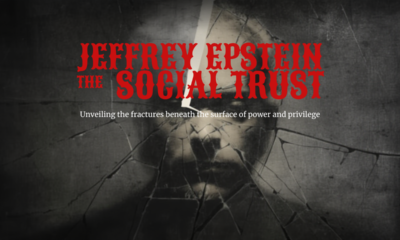
 Civilization4 days ago
Civilization4 days agoEpstein and the destruction of trust
-

 Civilization2 days ago
Civilization2 days agoTrump Lashes Out at Supreme Court as Under ‘Foreign Influence’
-

 Education5 days ago
Education5 days agoWaste of the Day: Throwback Thursday – The Story of Robosquirrel
-

 Civilization3 days ago
Civilization3 days agoSvalbard: The Other Arctic Island Flashpoint

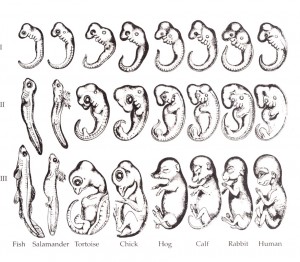


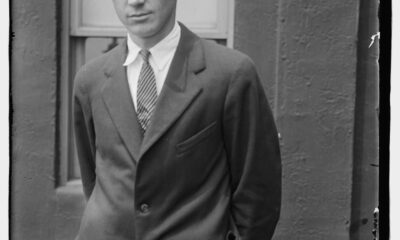



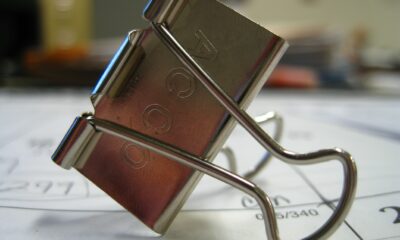





Any scientist that truly believes in his work and results are accurate will always be willing to share his work with others. This is not to say a scientist who is creating something has to give it away but basic research, especially funded by taxpayer funds, belongs to the funders not the scientist. The only exception being Secret government research but even then it still belongs to the taxpayer not the scientist.
What I find ironic in criticizing Lenski is that he’s offered the most fundamental evidence to back up his findings that can be provided – actual samples of the bacteria strains from his research.
As mentioned in the Wikipedia article on this experiment:
“Wild type E. coli cannot transport citrate across the cell membrane to the cell interior (where it could be incorporated into the citric acid cycle) when oxygen is present. The consequent lack of growth on citrate under oxic conditions is considered a defining characteristic of the species that has been a valuable means of differentiating E. coli from pathogenic Salmonella.”
So if you take actual samples of the populations before and after the change evolved, then a competent set of scientists should be able to prove or disprove two facts: that the evolved sample is e. coli and not something else like salmonella, and that they share a common DNA lineage.
Let’s be honest, if Lenski were to provide Schlafly with documentation beyond what’s already accessible online, what’s to prevent the inevitable claim that the documentation itself was rigged? Birthers pressed for the long-form birth certificate, and rather than accepting it when it was provided, more than a few claim it to be a forgery.
Lenski is displaying the highest degree of academic integrity by offering not just the data on the experiment (which is available in summary), but access to the experiment itself for anyone to independently confirm or refute.
As for the requirement that you must be a qualified biologist to handle the samples, that’s just common sense, and not an artificial barrier to keep the samples restricted to a fictional cabal of evolutionary proponents. One critic of Dr. Lenski’s research is Dr. Georgia Purdom, who holds a PhD in molecular genetics from Ohio State University, with a specialty in cellular and molecular biology. She also writes for Answers in Genesis, and seems like an appropriate candidate to take Dr. Lenski up on his offer and “check the raw data” for herself. As far as I can see, neither she or anyone else with the proper background to handle and analyze e. coli has done so, restricting their criticism to thought-based arguments rather than evidential ones.
Your friend Walt Brown insists that any team formally debating his hydroplate and related theories have at least one PhD on it, and you defend that condition by claiming a certain level of training is needed to properly and professionally critique his work. How is then that a biologist offering to share his actual samples, rather than numbers describing the samples, is out of line for insisting that the person handling them be qualified to do so in a safe and professional manner?
Well said Dinsdale. Terry himself has supported Walt Brown’s insistence that he only debate with someone of equal standing. Lenski asked that the recipient of his data at least be a qualified microbiologist rather than a church basement homeschool teacher. Of course if Terry as a qualified MD wanted to examine the samples, then that would be a different matter. ;)
Absolutely, JamesT! A clinical pathologist and laboratory administrator should have no problem receiving Lenski’s bacterial samples, duplicating the experiments, and demonstrating the utter falsity of Lenski’s claims. The materials and methods are already published, so no original research need to be done. What do you say, Dr. Hurlbut? I’m surprised that you didn’t offer your expertise when the issue first arose at Conservapedia.
The main reason that I don’t, is that I have retired from the field.
That seems like a bit of a cop-out, Terry, considering that you lambaste Lenski on this post for not sending his samples to an unqualified person. You should at least have the decency not to attack Lenski if you, a qualified person, won’t accept the samples.
Hey—if I don’t have access to the facilities anymore, how can I pretend that I have?
In any case, Mr. Schlafly asked for access to the notes, not the samples. Now that Barbara Spellman has put a proposal out there for a public “data dump” where investigators of all stripes could make their notes available, I’d say that Mr. Schlafly can legitimately call on Dr. Lenski to get with the spirit of the thing.
[…] Science fraud: more than you think […]